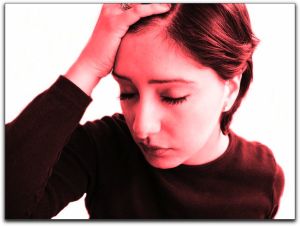Through the process of applying to the Integrative Arts program here at Penn State I have found someone who has used this program to become an art therapist. I was curious as to if this type of therapy and what exactly it does. There are actually quite a few schools that come up with this specific major when I looked for it so I feel as though there must be some good studies which show this process as being effective.
An article on arttherapyworks.ca states that this process works “by giving a person a different way to express their thoughts and feelings – both through the image they create and the ph ysical aspect of making the art”. It makes sense how expressing oneself through art can lead to helping them overcome their problems. What comes to mind also is Freud and how he studied the unconsciousness and determined people problems from their dreams, even though he is discredited today there might be some merit to this type of thinking.
ysical aspect of making the art”. It makes sense how expressing oneself through art can lead to helping them overcome their problems. What comes to mind also is Freud and how he studied the unconsciousness and determined people problems from their dreams, even though he is discredited today there might be some merit to this type of thinking.
This Wikipedia article lists several uses for art therapy outside of just psychological therapies, such as helping aid in the recovery from general illness. One particularly interesting use I found was that it was used to help people who were diagnosed with cancer to cope with this condition. I found this interesting because art is something that anyone can do and it helped people who were likely very upset and distraught.
In the Wikipedia article a review of studies is discussed in which states “When given five individual sessions of art therapy once per week, art therapy was shown to be useful for personal empowerment by helping the cancer patients understand their own boundaries in relation to the needs of other people.” I feel that these types of things are somewhat hard to test because they are based on feelings which can be hard to measure. In this specific study it is possible that there is a third variable involved such as the support system each patient had. However, I would be interested to see a large scale study done on how effect this therapy is compared to no therapy or other types of therapies.



 rg
rg
 responses of cats to several different voices, one of which being their owner’s. This study found that the cats displayed pupil dilation as well as ear and body movements when hearing their owner’s voices but not the other voices. This article also goes on to talk about a doctor who is using artificial intelligence software to translate the sounds of other animals into English. These are both very interesting findings which could mean that our cats understand or at least have an idea of what we are saying. The other article I found on the
responses of cats to several different voices, one of which being their owner’s. This study found that the cats displayed pupil dilation as well as ear and body movements when hearing their owner’s voices but not the other voices. This article also goes on to talk about a doctor who is using artificial intelligence software to translate the sounds of other animals into English. These are both very interesting findings which could mean that our cats understand or at least have an idea of what we are saying. The other article I found on the 







